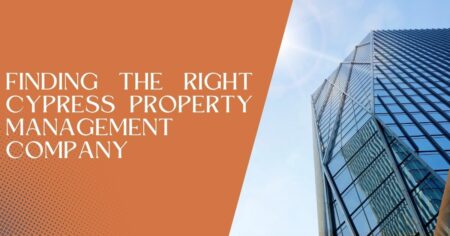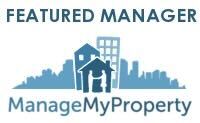Property management is critical in the real estate market since it ensures that varied properties are properly administered and maintained. Property managers monitor all aspects of a property’s operation, from residential buildings to commercial complexes, to ensure that it runs smoothly and maximizes value.
Introduction to Property Management
Property management entails a variety of responsibilities for preserving and growing the value of real estate assets. It entails the management of both residential and commercial properties, such as apartment buildings, office spaces, shopping malls, and industrial facilities.
Property management is the monitoring and operation of real estate properties on behalf of the owner. It entails rent collecting, property upkeep, tenant relations, and financial management to ensure that the property runs well and creates cash for the owner.
Effective property management is critical for sustaining the value of real estate assets while increasing returns. Property managers help real estate portfolios succeed in the long run by keeping properties in good shape, recruiting and retaining desirable tenants, and maximizing rental income.
Understanding Property Management
Property management is a multidimensional approach to managing real estate assets, involving a variety of tasks and responsibilities aimed at increasing the property’s value and guaranteeing its efficient functioning. At its foundation, it is concerned with the effective management of both tangible assets (buildings and land) and intangible assets (tenant relationships and revenue streams).
Understanding property management is critical for anybody interested in real estate because it serves as the foundation for effective asset management and investment strategies.
Roles of a Property Manager

A property manager’s responsibilities differ based on the type of property and the landlord’s requirements. A property manager’s key responsibilities include:
- Rent collection: The property manager collects rent from tenants on behalf of the landlord. The property manager will handle late payments and, if required, eviction proceedings.
- Repairs and Maintenance: The property manager will oversee any repairs or maintenance required on the property. They will contact contractors or vendors to perform repairs and guarantee that the work is completed quickly and efficiently.
- Tenant relations: Property managers address all tenant concerns and complaints. Property managers are additionally responsible for locating new tenants when needed.
- Legal compliance: The property manager will make sure that the property complies with every one of the federal, state, and local laws and regulations.
- Financial management: The property manager will be in charge of the property’s finances, covering budgeting, accounting, and record-keeping.
Types of Property Management

To further grasp what property management entails, consider the following points. Property management means taking care of many sorts of properties such as houses, offices, and industries. Each type requires specialized care and knowledge. Let us break down each of these:
Residential
Residential property managers manage apartment complexes, single-family houses, and condominiums, ensuring that renters have a pleasant living environment and resolving any problems that may develop. They can manage:
- Multi Family homes
- Single-family homes
- Town houses
- Manufactured homes
- Real estate-owned (REO) properties
- Apartments
- Condominiums
- Vacation rental
Commercial
Property managers for commercial properties oversee office buildings, retail malls, and mixed-use developments, with a focus on acquiring and retaining commercial tenants while also maintaining the property’s value. Commercial property managers can be hired to oversee:
- Malls, Restaurants, and Gas Stations (Retail properties)
- Real Estate Brokerages or Doctors’ Offices (Office properties)
- Hotels (Public Accommodations)
- Co-working Spaces
Industrial
Industrial property managers are in charge of managing specialized spaces designed to meet the needs of industrial tenants. This consists of:
- Warehouses
- Manufacturing Facilities
- Distribution Centers
- Food Packaging Factories (Light manufacturing factories)
- Steel Mills and Automotive Plants (Heavy manufacturing facilities)
Special Purpose
Special-purpose property management is the administration of properties with distinct characteristics or objectives, which frequently necessitates particular knowledge and expertise. Examples of special-purpose qualities are:
- Amusement Parks
- Bowling Alleys
- Car wash properties
- Theaters
- Wineries
Starting a Property Management Company

Starting a property management company entails numerous critical procedures. First, wannabe entrepreneurs should perform extensive market research to uncover new possibilities and evaluate competitors. Next, they should create a business strategy that details their services, target market, and financial projections. In addition, obtaining the proper licenses and certificates is critical to ensuring compliance with local rules.
When calculating costs, consider starting expenses such as office space, marketing materials, and property management software. In terms of ongoing expenses, property management businesses often charge a management fee that ranges from 8% to 12% of the rental income. This charge covers a variety of services, including property maintenance, tenant screening, rent collecting, and financial reporting. Additional fees may apply for lease, eviction proceedings, or major repairs.
Companies can attract clients and grow their businesses by offering complete management services and open pricing structures.
Commonly Asked Questions
1. What is property management, and why do I need it?
It entails the management of real estate, operations, and oversight. It includes a variety of responsibilities such as renting, leasing, maintenance, and compliance with local rules. If you own many properties or don’t have the time or ability to efficiently manage them, hiring a property manager can help. They undertake day-to-day tasks such as collecting rent, handling tenant problems, arranging maintenance, and assuring legal compliance.
2. Do I need a property manager?
- If you own many properties or do not have the time or experience to handle the day-to-day chores, you may want to hire a property manager.What responsibilities does a property manager normally perform?
- Property managers are frequently in charge of collecting rent, dealing with tenant complaints, arranging property upkeep and repairs, and assuring compliance with local rules.
3. Are there various types of property managers for residential and commercial properties?
- Yes, some property management businesses specialize on only residential or commercial properties, while others handle both.
4. How much does it usually cost to hire a property manager?
- The cost of engaging a property manager varies depending on the number of properties being managed and the services offered. It is often a proportion of the monthly rent received.
5. Can I engage property management for a single property, or do I need several?
- You may hire a property manager for a single property if you choose. Many property management businesses are eager to deal with property owners regardless of how many properties they have.
6. What qualifications should I look for when selecting a property manager?
- You should look for qualified property managers with a solid reputation and experience. It’s also vital to assess their communication abilities and their understanding of your special demands as a property owner.
7. How involved should I be if I employ a property manager?
- The level of involvement expected from you as a property owner varies according to your choices and the services that are provided by the property manager.
- Some owners choose to remain hands-off and allow the property manager handle everything, but others prefer to be more active in specific elements.
8. Can a property management help me find customers?
- Yes, many property managers provide tenant placement services as part of their business. This may include marketing vacancies, evaluating possible renters, and creating lease agreements.
9. What are the possible consequences of failing to employ a property manager?
- Without a property manager, you may have to handle time-consuming chores like tenant screening, rent collecting, and property maintenance on your own. In addition, if you are unfamiliar with local landlord-tenant rules, you may face legal consequences.
10. How can I know if a property manager is reputable and trustworthy?
- You can investigate property management businesses online, read reviews from other property owners, and request references from the property manager. It’s also a good idea to interview many property managers and evaluate their services and rates before making a decision.
Conclusion
In the end, property management is critical for preserving the value of real estate assets while minimizing hassle. Whether it’s residential, commercial, or special-purpose properties, having the correct management in place assures smooth operations and optimum profits. It is the comprehensive control and management of real estate assets, including tenant screening, rent collecting, property maintenance, and financial reporting. Oak Loop Properties is a great option if you want high-quality property management services. With their experience and attention, they can handle all elements of property management, allowing you to relax and reap the advantages of your investment. Trust Oak Loop Properties to meet your property needs and help your investment thrive. So, what is property management? It is the foundation of successful real estate ownership, giving a framework for profit and peace of mind.









